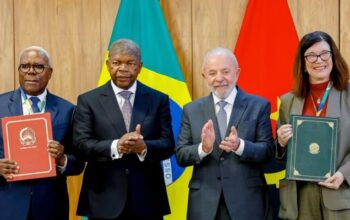The National Bank of Angola (BNA) has set ambitious targets for achieving a 75 percent rate of financial inclusion by 2028, as outlined in its latest bimonthly Financial Stability report released in late June.
According to the report, the BNA has prioritized several initiatives aimed at bolstering financial inclusion, with microcredit and other non-bank financial instruments playing a pivotal role.
Microcredit, governed by current legislation such as Law no. 14/21, is defined as small-value loans tailored for small and medium entrepreneurs, facilitated by qualified financial institutions under specific regulations.
“This approach is crucial for economic and social inclusion, driving transformative changes in financial accessibility,” the report emphasizes.
Immediate priorities for the BNA include reducing the minimum share capital requirements for microcredit companies from 25 million kwanzas to five million, and for cooperative credit companies to one million kwanzas.
Simplifying licensing processes, particularly for credit cooperative societies, will also be streamlined to foster a more dynamic financial environment.
Additionally, the introduction of microcredit operators without the need for formal licensing is expected to integrate informal market activities into the formal sector, enhancing overall financial stability.
The report highlights the emergence of new entities within Angola’s financial landscape, including 20 Microcredit Societies, two Credit Cooperative Societies, and 11 Microcredit Operators.
These institutions operate across 65 branches nationwide, predominantly concentrated in Luanda, Cabinda, Benguela, Huambo, and Huíla.
In terms of regional distribution, microcredit companies and credit cooperatives disbursed a total of 6,543.24 million kwanzas in the first quarter of this year.
Notably, Luanda received 67.22 percent of the total disbursement, followed by Huíla (8.66 percent), Benguela (8.19 percent), Huambo (4.90 percent), and Cabinda (2.12 percent). The remaining provinces collectively accounted for 8.91 percent of the disbursements.
Of the funds allocated, 85.27 percent were directed towards entrepreneurial ventures, underscoring the pivotal role of microcredit in fostering business growth, while the remainder supported consumption-related activities.
Through these strategic initiatives, the BNA aims to significantly enhance financial inclusion, driving economic empowerment and sustainable development across Angola.
![]()




